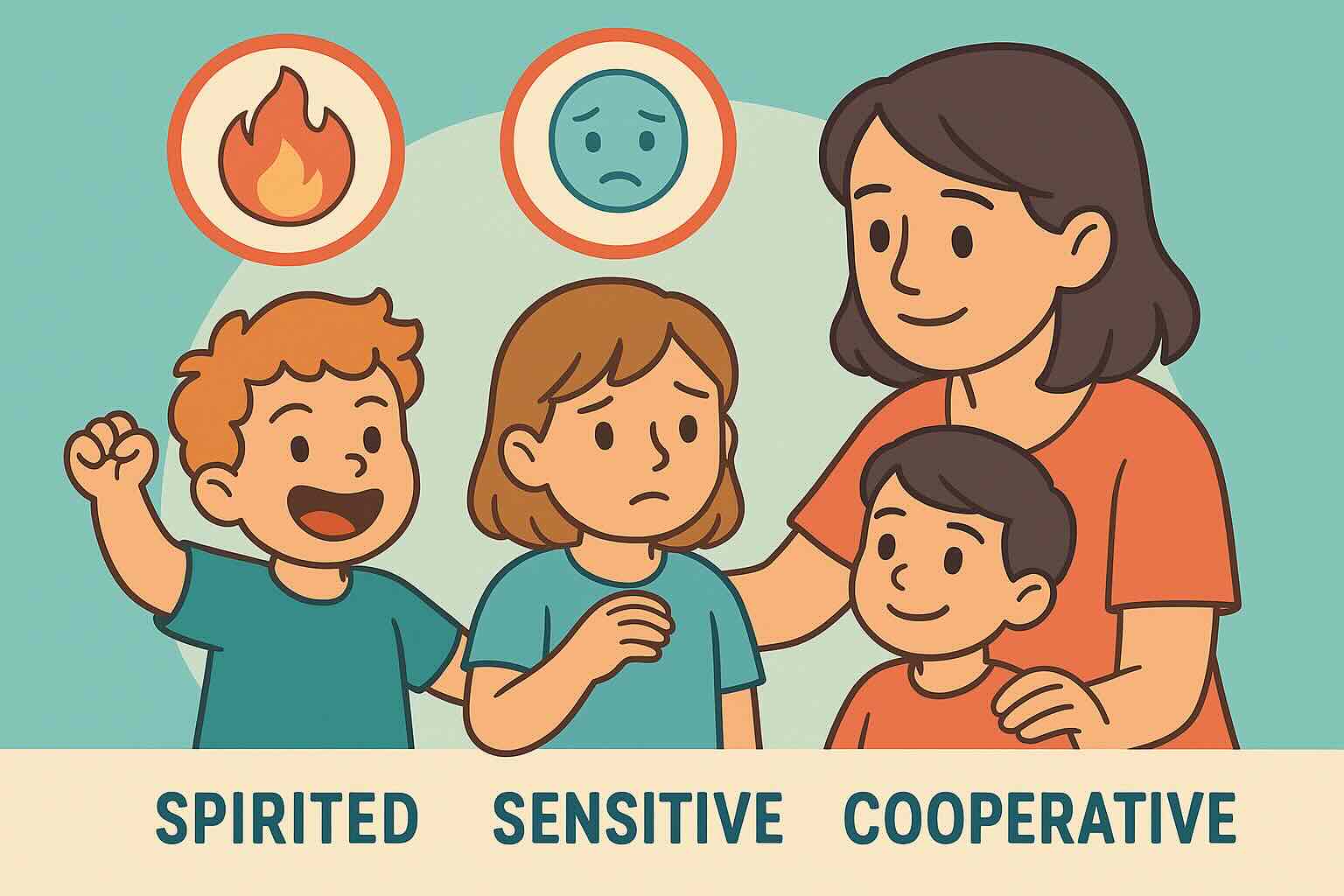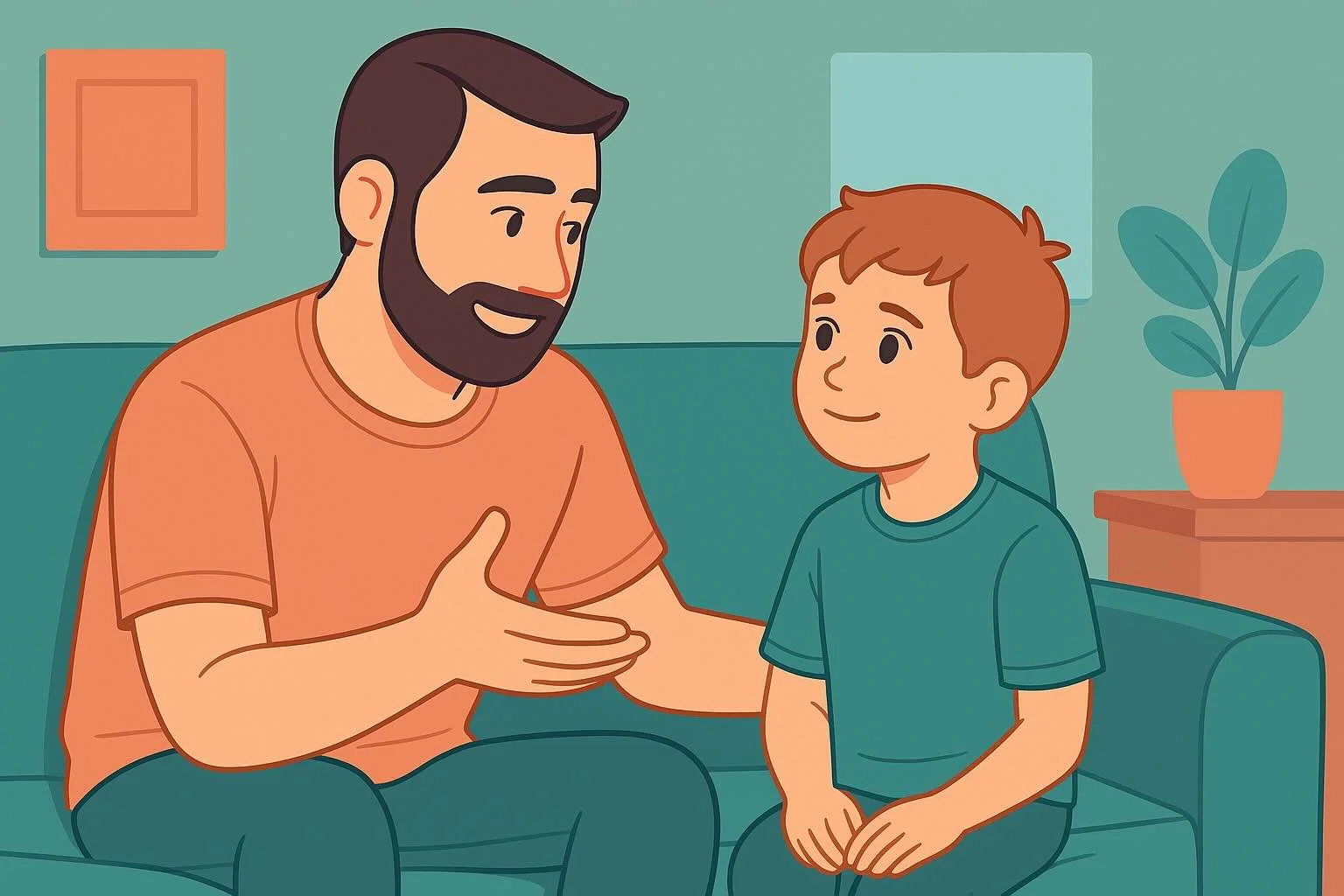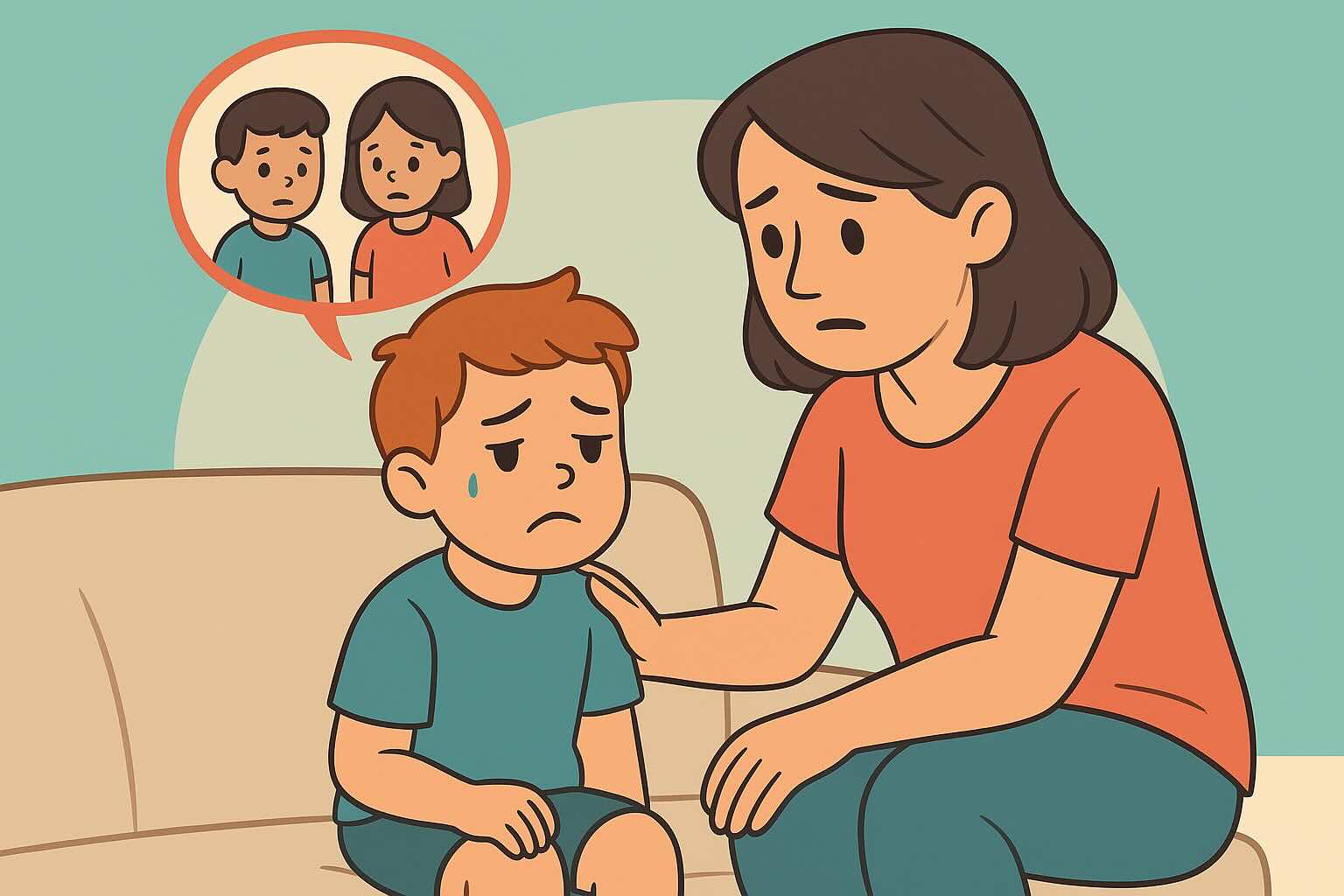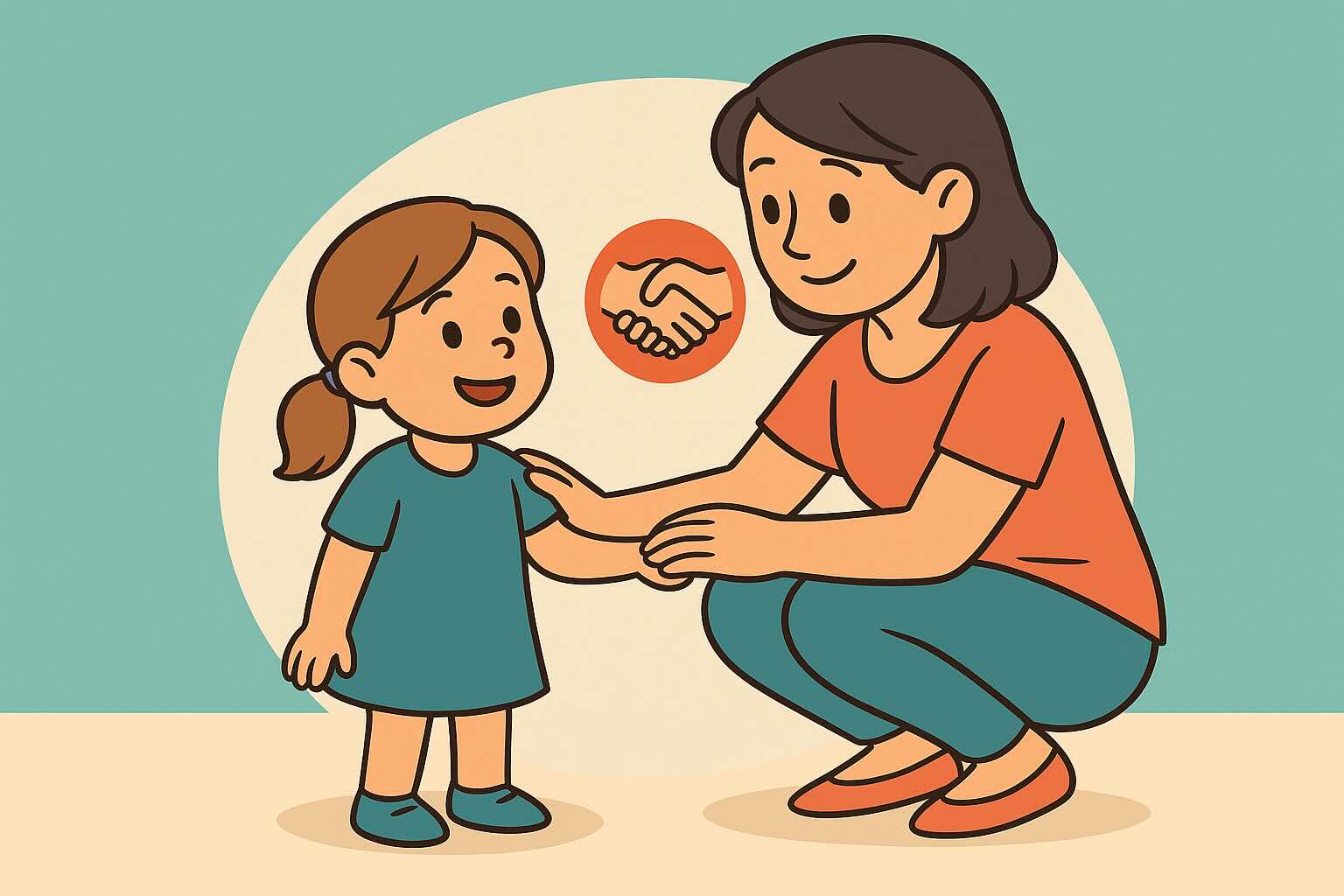Understanding Your Child Personality: 3 Types Every Parent Must Know


Understanding Your Child's Personality: Complete Guide to the Three F's (Ages 3-7)
Feisty, Fearful, or Flexible? Identifying Your Child's Natural Temperament
Understanding your child's natural personality is like having a roadmap for parenting success. When you know whether your child is naturally feisty, fearful, or flexible, you can adapt your approach to work with their temperament instead of fighting against it.
The truth is: there's no "good" or "bad" personality type. Each temperament comes with unique strengths and challenges. Your job as a parent isn't to change who your child is, but to help them become the best version of themselves.
This comprehensive guide will help you identify your child's dominant personality traits and provide tailored strategies for supporting their healthy development. No more one-size-fits-all parenting advice—just personalized approaches that honor your child's natural way of being.
Once you've identified your child's temperament, dive deeper with our specific guides: the cooperative child, the sensitive child, and the spirited child. For children experiencing social challenges regardless of temperament, our social misunderstandings guide provides additional support.
What You'll Learn in This Guide
- The Three F's Framework - Understanding feisty, fearful, and flexible temperaments
- Identification Tools - How to recognize your child's dominant traits
- Personality Profiles - Deep dive into each type's characteristics and needs
- Tailored Parenting Strategies - Specific approaches for each personality
- Mixed Personalities - What to do when your child shows multiple traits
- Age-Specific Considerations - How personality shows up differently at 3-4 vs 5-7
- Long-Term Development - Supporting healthy growth for each type
Estimated reading time: 14 minutes
The Three F's Framework: Understanding Child Temperament
What Is Temperament?
Temperament refers to your child's innate, biological way of approaching and responding to the world. It's present from birth and influences how they:
- React to new situations and people
- Handle emotions and stress
- Approach challenges and changes
- Interact socially with others
- Respond to rules and expectations
Important understanding: Temperament is not:
- Something you caused through parenting
- A choice your child is making
- Something that needs to be "fixed"
- Predictive of future success or failure
- The only factor in your child's development
The Three Primary Personality Types: Understanding Child Temperament
Based on decades of child development research, most children's temperaments can be understood through three primary patterns:
Spirited (Strong-Willed)
- Natural rebels who push back against authority
- Independent thinkers who want control
- Big emotional reactions when frustrated
- Natural leaders with strong opinions
Sensitive (Cautious/Thoughtful)
- Slow to warm up to new experiences
- Naturally hesitant and observant
- Prefer familiar routines and people
- Deep thinkers who process carefully
Cooperative (Agreeable/Harmonious)
- Naturally accommodating and peaceful
- Work hard to make others happy
- Avoid conflict and seek harmony
- Adaptable and easygoing
Identifying Your Child's Personality Type
The Spirited Child: Natural Rebel
Core characteristics you'll observe:
Independence and Control
- Wants to do things "my way"
- Pushes back when given directions
- Asks "why" to most requests
- Prefers to make their own decisions
- Resists being told what to do
Emotional Intensity
- Has big reactions to disappointment
- Shows strong emotions, both positive and negative
- Takes time to calm down from upsets
- Passionate about their interests and preferences
- Expresses frustration loudly and clearly
Social Behavior
- Often takes charge in play situations
- Can come across as bossy to peers
- Stands up for themselves readily
- May struggle with compromise
- Natural leader in group activities
Response to Rules and Boundaries
- Questions the purpose of rules
- Tests limits regularly
- Wants to negotiate terms
- Feels oppressed by too many restrictions
- Responds better to choices than commands
Example scenarios:
- When told "time for bed," they argue: "But I don't want to! Five more minutes!"
- During play, they direct others: "No, that's not how you do it. Let me show you."
- At the store, they demand: "I want that toy! Why can't I have it?"
- When frustrated, they might throw toys or slam doors
The Sensitive Child: Cautious Observer
Core characteristics you'll observe:
Hesitation and Caution
- Slow to warm up to new people or situations
- Observes carefully before participating
- Says "no" to unfamiliar experiences initially
- Needs time to process changes
- Prefers to watch before trying
Sensitivity and Awareness
- Notices details others miss
- Affected by others' emotions and moods
- Reacts strongly to overstimulation
- Needs quiet time to recharge
- Picks up on subtle environmental changes
Social Behavior
- Clings to parents in new social situations
- Takes time to engage with peers
- Prefers smaller groups or one-on-one interactions
- May appear shy or withdrawn initially
- Forms deep bonds with familiar people
Response to New Experiences
- Automatic "no" to novel activities
- Needs preparation and information in advance
- Benefits from gradual exposure
- Recovers slowly from overwhelming experiences
- Prefers familiar routines and environments
Example scenarios:
- At a party, they stay close to you: "I don't want to play with the other kids."
- When invited to try something new: "No, I don't want to. Can we go home?"
- Meeting new people, they hide behind your legs and don't speak
- In overwhelming environments, they might have meltdowns or withdraw
The Cooperative Child: Natural Peacemaker
Core characteristics you'll observe:
Agreeableness and Cooperation
- Goes along with others' suggestions easily
- Rarely argues or pushes back
- Seems to naturally know what others want
- Adapts to changes without complaint
- Puts others' needs before their own
People-Pleasing Tendencies
- Works hard to make others happy
- Avoids disappointing people
- Says "yes" even when they might prefer "no"
- Takes blame to avoid conflict
- Worries about others' reactions to their choices
Social Behavior
- Gets along well with most peers
- Lets others choose activities and games
- Includes others and shares readily
- Rarely the source of social conflicts
- Often the "good" child teachers love
Response to Rules and Expectations
- Follows rules without question
- Complies with requests immediately
- Seems to lack strong preferences
- Rarely tests boundaries
- May seem to have no opinions of their own
Example scenarios:
- When friends choose an activity they don't love: "Okay, that sounds fun" (even if it doesn't)
- Asked what they want for lunch: "I don't care. Whatever you want to make."
- During conflicts: "It's okay. I don't mind. They can have it."
- Never seem to cause trouble or need discipline
Understanding Mixed Personalities
Most Children Show Multiple Traits
It's completely normal for your child to display characteristics from more than one personality type. They might be:
- Feisty at home but fearful in social situations
- Flexible with friends but feisty with siblings
- Fearful about new experiences but feisty about fairness
- Flexible in some areas but have strong opinions about others
Situational Variations
Your child's personality expression may vary based on:
Setting
- Home vs. school vs. social situations
- Familiar vs. unfamiliar environments
- Structured vs. unstructured activities
- Large groups vs. small groups vs. one-on-one
Relationships
- With parents vs. peers vs. authority figures
- With siblings vs. friends vs. strangers
- With gentle personalities vs. strong personalities
- In competitive vs. cooperative situations
Internal factors
- Tiredness, hunger, or stress levels
- Developmental stages and growth spurts
- Recent changes or disruptions in routine
- Confidence level in specific areas
Identifying the Dominant Pattern
To determine your child's primary personality type, consider:
Frequency: Which traits show up most often across different situations?
Intensity: Which characteristics are strongest when they appear?
Consistency: Which patterns remain stable over time and across contexts?
Stress response: How do they typically react when overwhelmed or challenged?
Natural state: What are they like when relaxed, comfortable, and in their element?
Age-Specific Personality Expressions
Ages 3-4: Early Personality Emergence
At this age, personality traits are becoming more apparent but are still developing.
Feisty children (3-4):
- Tantrums when told "no"
- Want to do everything independently
- Strong preferences about clothes, food, activities
- Physical responses to frustration (hitting, throwing)
- Beginning to use "no" as their favorite word
Fearful children (3-4):
- Cling to parents in new situations
- Need significant transition time
- May have separation anxiety
- Overwhelmed by loud or chaotic environments
- Prefer familiar routines and objects
Flexible children (3-4):
- Easy to redirect during conflicts
- Seem naturally compliant and agreeable
- Rarely have tantrums or behavioral issues
- Adapt easily to changes in routine
- Please adults with their cooperation
Ages 5-7: Personality Refinement
Older children show more sophisticated expressions of their temperament.
Feisty children (5-7):
- Argue and negotiate more skillfully
- Challenge unfair rules or treatment
- Show leadership qualities in group settings
- May have conflicts with authority figures
- Strong sense of justice and fairness
Fearful children (5-7):
- May develop specific fears or anxieties
- Need preparation for school and social activities
- Form deep friendships with selected peers
- Show increased emotional sensitivity
- May worry about performance and approval
Flexible children (5-7):
- May struggle to express preferences or opinions
- Easily influenced by peer pressure
- Consistently helpful and cooperative
- May take on too much responsibility for others' feelings
- Risk losing sense of individual identity
Tailored Parenting Strategies for Each Type
Parenting the Feisty Child
Core principles:
- Work with their need for control, not against it
- Provide choices within acceptable boundaries
- Stay calm during their emotional storms
- Channel their leadership qualities positively
Daily strategies:
- Offer limited choices: "Do you want to brush teeth first or put on pajamas first?"
- Use "when/then" statements: "When toys are cleaned up, then we can read stories"
- Validate their feelings while maintaining boundaries: "You're angry about bedtime AND it's time to sleep"
- Give them leadership opportunities: "You can be the line leader today"
What works:
- Clear, consistent boundaries
- Advance warning about transitions
- Acknowledgment of their strong will as a positive trait
- Opportunities to make age-appropriate decisions
What doesn't work:
- Power struggles and arguing
- Lengthy explanations during emotional moments
- Threats and punishments without follow-through
- Trying to control their every move
Parenting the Fearful Child
Core principles:
- Respect their need for time and preparation
- Provide security while encouraging gentle growth
- Support without rescuing
- Build confidence through small successes
Daily strategies:
- Prepare them for new situations with facts and coping plans
- Stay nearby during challenging situations without hovering
- Acknowledge their bravery in small steps
- Create predictable routines that help them feel secure
What works:
- Advance notice about changes or new experiences
- Patience with their warm-up time
- Celebration of courage, no matter how small
- Gentle encouragement without pressure
What doesn't work:
- Pushing them into situations before they're ready
- Dismissing their fears as "silly"
- Making decisions for them instead of supporting their own choices
- Avoiding all challenging situations to protect them
Parenting the Flexible Child
Core principles:
- Help them find and express their own voice
- Ensure they don't always compromise their needs
- Teach healthy boundaries while maintaining their kindness
- Avoid taking advantage of their agreeable nature
Daily strategies:
- Ask for their opinions and preferences regularly
- Give them opportunities to choose first sometimes
- Acknowledge when they accommodate others
- Practice saying "no" in safe, low-stakes situations
What works:
- Regular check-ins about their feelings and needs
- Encouragement to express disagreement or different opinions
- Opportunities to practice leadership and decision-making
- Validation that their preferences matter
What doesn't work:
- Always expecting them to be the "easy" child
- Making decisions for them because they don't voice preferences
- Taking their cooperation for granted
- Allowing others to consistently take advantage of their kindness
Supporting Each Type's Social Development
Feisty Children's Social Needs
Challenges they face:
- Coming across as bossy or controlling to peers
- Difficulty compromising in group situations
- Strong reactions when things don't go their way
- May intimidate more sensitive children
Support strategies:
- Teach the difference between leading and bossing
- Practice turn-taking and compromise
- Help them recognize others' feelings and needs
- Create opportunities for positive leadership
Fearful Children's Social Needs
Challenges they face:
- Difficulty initiating social interactions
- Being overlooked by more assertive children
- Feeling overwhelmed in group settings
- Taking longer to form friendships
Support strategies:
- Arrange one-on-one playdates before group activities
- Prepare them for social situations in advance
- Help them practice conversation starters and joining skills
- Celebrate their observations and thoughtful contributions
Flexible Children's Social Needs
Challenges they face:
- Always going along with others' preferences
- Difficulty expressing their own ideas or wants
- Being taken advantage of by more assertive peers
- Risk of losing individual identity in relationships
Support strategies:
- Encourage them to share their ideas and preferences
- Teach them it's okay to disagree sometimes
- Help them recognize when they're being taken advantage of
- Practice assertive responses to peer pressure
Long-Term Development Goals for Each Type
Feisty Child Development Goals
Ages 3-7 goals:
- Learning to channel their strong will positively
- Developing emotional regulation skills
- Understanding how to lead without overpowering others
- Building empathy and consideration for others
Long-term vision:
- Confident leaders who inspire rather than intimidate
- Independent thinkers who can also collaborate
- Passionate advocates for justice and fairness
- Emotionally intelligent individuals who use their intensity purposefully
Fearful Child Development Goals
Ages 3-7 goals:
- Building confidence to try new experiences
- Developing coping skills for overwhelming situations
- Learning to express their needs and preferences
- Forming meaningful peer relationships
Long-term vision:
- Thoughtful, empathetic adults who contribute wisdom to the world
- Confident individuals who trust their careful decision-making
- Deep friends and partners who form meaningful connections
- Creative, sensitive people who notice what others miss
Flexible Child Development Goals
Ages 3-7 goals:
- Learning to recognize and express their own preferences
- Developing healthy boundaries while maintaining kindness
- Building confidence in their opinions and ideas
- Learning when to accommodate others and when to assert themselves
Long-term vision:
- Caring leaders who consider everyone's needs
- Confident individuals who choose kindness from strength
- Skilled collaborators who also maintain their individual identity
- Empathetic people who help others while taking care of themselves
When Personality Becomes Concerning
Normal vs. Problematic Expressions
Each personality type has both healthy and concerning expressions:
Feisty children:
- Normal: Strong opinions, leadership qualities, standing up for themselves
- Concerning: Aggression toward others, inability to follow any rules, constant conflict
Fearful children:
- Normal: Caution, observation before participation, sensitivity to others
- Concerning: Panic attacks, complete avoidance of social situations, inability to function in normal settings
Flexible children:
- Normal: Cooperation, empathy, adaptability
- Concerning: Complete inability to express preferences, excessive anxiety about disappointing others, loss of individual identity
When to Seek Professional Support
Consider professional help if:
- Personality traits significantly interfere with daily functioning
- Extreme expressions that don't improve with consistent support
- Social, emotional, or academic problems persist despite intervention
- Family functioning is severely impacted by child's temperament
- You notice regression in previously developed skills
Key Takeaways: Understanding Your Child's Personality
- ✅ Personality is innate and present from birth - it's not something you caused or can change
- ✅ Each type has unique strengths and challenges - no personality is better or worse
- ✅ Most children show mixed traits - look for dominant patterns, not perfect fits
- ✅ Adapt your parenting to work with their temperament - not against it
- ✅ Personality expression varies by situation - context matters in how traits show up
- ✅ Early identification helps but personality continues developing - stay flexible in your understanding
- ✅ Support healthy expression of their natural traits - don't try to change who they are
- ✅ Each type needs different social skills support - tailor your approach accordingly
- ✅ Professional help is available when traits become extreme - trust your instincts
- ✅ Understanding personality improves your relationship - connection grows when you truly see your child
Remember: Your child's personality is a gift, even when it challenges you. Feisty children become confident leaders, fearful children develop deep wisdom and empathy, and flexible children create harmony and inclusion wherever they go. Your job is to help them become the best version of who they naturally are.
This guide is based on established temperament research and child development theory. Individual children are unique and may not fit perfectly into any category. Use this framework as a helpful tool for understanding, not as a rigid classification system. Consult with professionals if you have concerns about your child's development or behavior.
24/7 AI Parenting Assistant
Get instant, personalized advice with expert-curated parenting knowledge. Chat with your AI coach anytime, anywhere.

Social Skills Toolkit
Help your child navigate social challenges with resilience-building strategies, perspective-taking tools, and friendship skills.
Frequently Asked Questions
Need personalized support?
RootWise's AI coach can provide tailored strategies for your specific situation, available 24/7 when you need it most.
Learn More About AI Coaching →



